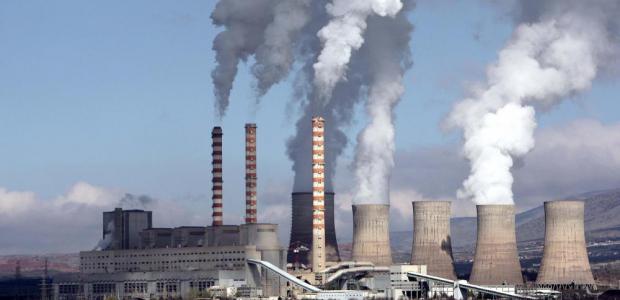An anticipated rise in European carbon emission rights, prompted by an EU decision on its Emissions Trading System, has raised concerns at main power utility PPC over the additional ETS costs entailed for the corporation, which are expected to rise well above the current level of roughly 280 million euros per year. The expected cost increase may destabilize the power utility’s sustainability, its board fears.
“This year alone, the carbon emissions rights burden for PPC is expected to reach 280 million euros, based on emissions costs of 7 to 8 euros per ton. A possible price increase to levels of between 12 and 20 euros per ton may have serious consequences on PPC’s sustainability,” the power utility’s CEO Manolis Panagiotakis declared.
European officials fear that the ETS, which registered a significant surplus in 2013 and is expected to continue along this trend in the years to come, has been unsettled and is currently unable to fulfil its purpose of reducing emissions in Europe.
The ETS places annual emission caps on energy-intensive and carbon-polluting industries, which may buy and sell emissions rights depending on their respective needs. The permitted emissions level is being reduced at a rate of 1.74 percent each year, from 2013 to 2020. The EU has decided to reduce the cap by 2.2 percent per year between 2021 and 2030.
Fearing major repercussions to its financial standing, PPC plans to request being exempted by the European Commission from its EU directive on ETS regulations for member states, based on a precedent set in the case of Poland.
Panagiotakis, PPC’s chief, had verbally requested free emission rights for electricity production in June during a meeting in Brusssels with the European Commissioner for Climate Action and Energy Miguel Arias Canete and the EU’s competition commissioner Margrethe Vestager. An official request is expected to be submitted now that the Greek elections are out of the way.
The Greek request will be based on the contraction of the country’s GDP, now below 60 percent of the EU average, a standing, which, according to the EU directive, offers emission right exemptions for member states. When the directive was implemented in 2013, Greece’s GDP measured 62 percent of the EU average, which did not allow the country to be exempted. Panagiotakis forwarded his initial request based on the fact that Greece’s GDP in 2014 stood at 59.7 percent of the EU average. The PPC chief also argued that neighboring countries, apart from Italy, are not obligated to purchase carbon emission rights, which, he contended, has created unfair competition and led to considerable electricity imports, a detrimental development for local power producing stations.





